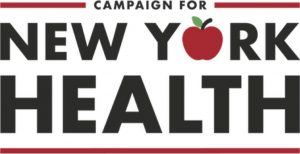By Sarah Outterson-Murphy
Many people worry about the cost of their own healthcare, but local business owners also worry about their employees.
“I can’t afford to offer healthcare to my coworkers,” said Faiga Brussel, owner of Good Cheap Food in Delhi. “Years ago, I tried, and quickly ran into a brick wall of financial disaster and had to backtrack. Now it is so much worse.”
Health coverage is particularly important for local farmers, well aware of their work’s physical dangers (https://goo.gl/hGXYKT).
“The occupation itself is an injury to your body,” said Eleanor Blakeslee-Drain, who owns Berry Brook Farm in Delancey. “So health insurance is a must for us.” Blakeslee-Drain, her husband, and two sons will lose Medicaid this year, because their vegetable farm now makes enough money that they no longer qualify. “We used to joke that since giant agribusiness gets massive government subsidies to not grow corn, Medicaid was our small farm’s subsidy. But without Medicaid, I’m worried that our options will be either expensive or not very good coverage.”

These and other small business owners in Delaware County support the New York Health Act, state legislation that would cover all healthcare for New York residents. According to the grassroots Campaign for New York Health (NYHCampaign.org), the bill would eliminate networks, deductibles, copays, and insurance companies. All medically necessary care (including vision, dental, prescriptions, and devices like dentures and hearing aids) would be covered, as determined by your primary care physician.
NY Health has gained momentum alongside calls for national Medicare for All. The bill (A4738/ S4840) passed the state Assembly on June 14 for the fourth year straight but needs one co-sponsor for a Senate majority. Senator Seward, who chairs the Insurance Committee, is not a co-sponsor.
NY Health will be financed through a progressive payroll tax with employers paying eighty percent and employees twenty percent, and a similar tax on capital gains for upper incomes. Those making under $25,000 a year would pay nothing, according to an analysis by economics professor Gerald Friedman (https://goo.gl/MWq3Rd). For those making $50,000, healthcare would cost employer and employee a total of $2,250 a year, and for those making $75,000, it would cost $5,000.
This tax would replace premiums, deductibles, and copays, and would cover all dependents. Friedman concludes that costs will be this low, even after expanding coverage, because single-payer NY Health will reduce administrative complexity and begin negotiating drug prices.
Currently, businesses pay a lot more. According to last year’s Kaiser Employer Health Benefits survey, 2017 premiums for family coverage increased to $17,615 for an average small business worker, with employer paying sixty percent and employee forty percent (https://goo.gl/yNrTP8).
For local businesses with thin profit margins, this cost is daunting. The median weekly wage in Delaware County is $820 (goo.gl/B5qC6K). Do the math: family health benefits add twenty-five percent to labor costs at an average Delaware County small business.
Such costs can force an impossible choice: go without health coverage, or go out of business. Pam Gueldner, who owns a food service business in Ithaca with forty employees, wishes she could provide health benefits for herself and her employees.
“Not having health care raises anxiety levels in staff, and also creates a lot of turnover because employees eventually seek jobs that provide health care,” Gueldner explained. Even covering just employees, not their families, would add ten percent to her business’s labor costs. “That doesn’t sound like much,” she said. “But when you consider that our profit margin is zero to five percent, providing healthcare would put us in the red.”
Even when businesses provide insurance, insurance covers less each year. Deductibles now average above $2,000 for small business employees, according to the Kaiser survey. Even insured people avoid getting necessary care, making them sicker and less productive at work. NY Health will eliminate deductibles and other financial obstacles to care.
By providing health coverage for everyone, supporters argue, NY Health would encourage entrepreneurs to start businesses without fear of losing coverage. NY Health ties coverage costs to workers’ income, easing the relative burden of healthcare costs on low-margin businesses. It also eliminates the time businesses spend to administer health plans, allowing them to focus on growth.
Meanwhile, according to Friedman, the savings from reducing people’s healthcare costs statewide will pump money into New York’s economy and create around 200,000 new jobs, many of them in small businesses glad to have comprehensive, affordable healthcare.
Small businesses may not earn big profits, but they drive our economy.
“We create jobs in agriculture with respectable wages, we grow food for our local community, and we try to give as much help as we’ve gotten from our friends and neighbors,” says Blakeslee-Drain. “NY Health would level the playing field for farming families like mine.”
Sarah Outterson-Murphy lives in Delhi, parents two small children, and teaches English part-time.
